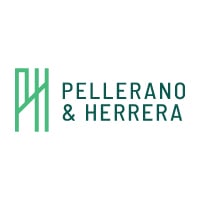

Legal and compliance director | Advanced Asset Management



Nicole Marie Rodríguez de Soto
Legal and compliance director | Advanced Asset Management
How do you approach managing legal aspects during periods of instability or crisis to ensure the organisation’s resilience?
In times of crisis, my approach is based on anticipation, clarity, and collaboration. I prioritise risk mapping and scenario planning early, ensuring agile legal frameworks and contingency protocols are in place. During periods of volatility, whether regulatory, reputational, or market-driven, my legal team focuses on providing clarity for the business, acting as a bridge between complex legal implications and strategic decision-making. I also emphasise reinforcing a strong legal culture within the organisation, so that even in uncertain times, decisions remain aligned with the law, ethics, and long-term corporate sustainability.
Based on your experiences in the past year, are there any trends in the legal or business world that you are keeping an eye on that you think other in-house lawyers should be mindful of?
One growing trend I have observed is the increasing use of AI bots and recording tools in virtual meetings. These technologies, often introduced by external participants or third-party platforms, pose significant risks when conversations involve commercially sensitive or legally protected information. This raises concerns over confidentiality, data protection, and potential litigation exposure.
In response, I proposed and implemented an internal policy that prohibits unauthorised recordings and establishes clear protocols for the use of digital collaboration tools. We also trained key personnel on the legal implications of such practices, emphasising preventive governance in a technology-driven work environment. In-house lawyers must now think beyond traditional legal risks and actively manage the intersection of law and new technologies.
What factors influence your team’s decision to use external legal services versus handling matters in-house, and what criteria are used to evaluate their performance?
While most regulatory, compliance, and contractual matters are handled in-house, we rely on external counsel for high-stakes investments involving cross-border M&A or complex financing. We prioritise firms with deep industry knowledge, business-oriented advice, and clear communication. Our goal is to build long-term partnerships. We have cultivated trusted relationships with two top-tier Dominican firms, one U.S.-based firm, and preferred legal partners in key jurisdictions such as Mexico and Panama. Their performance is measured by the strategic value they bring, not just the legal outcome.
How does your team contribute to the overall business strategy of the company? Can you share an example of a recent legal-led initiative that had a significant impact?
As a fund manager regulated by the Dominican securities authority, the legal and compliance team is involved in almost every business decision. We manage third-party capital and are subject to ongoing audits by the regulator, so legal rigour is not optional; it is strategic. My team ensures that all investment decisions, corporate governance actions, and compliance practices withstand regulatory scrutiny while protecting investor interests.
One impactful, legal-led initiative was the standardisation of board and committee minutes across our governance structure, including the Investment Committees of each fund, the Board of Directors, and oversight committees such as Risk, Regulatory Compliance, AML, and Nominations. This effort improved the consistency, clarity, and legal sufficiency of our records while reducing the inclusion of commercially sensitive or unnecessary details that could pose future risks.
We also led the implementation of a corporate governance software solution that centralised all meeting documentation, approvals, and archives in one secure system. This enhanced traceability, streamlined regulatory responses, and elevated the company’s governance maturity.